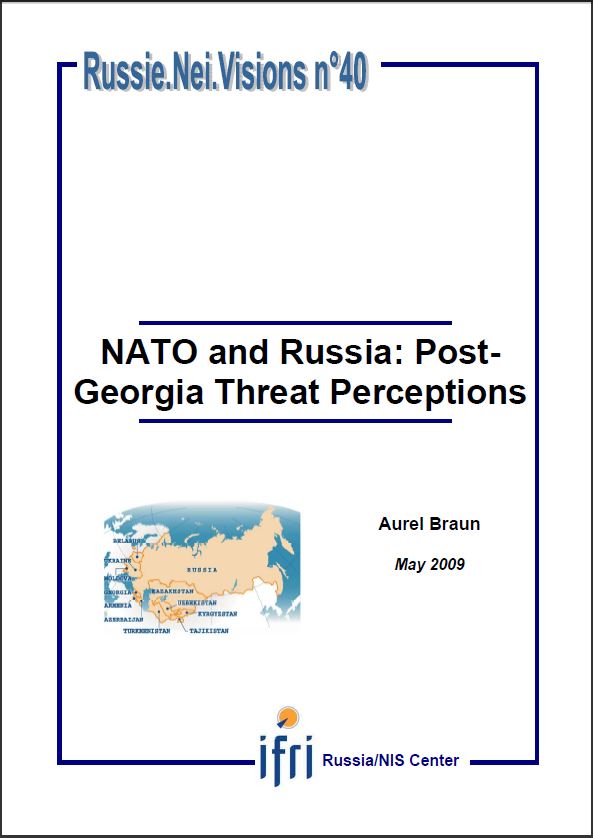NATO and Russia: Post-Georgia Threat Perceptions

The 2008 war in Georgia is but a milestone on the downward curve in NATO-Russia relations, one that has been characterized by misunderstandings, misplaced expectations and missed opportunities. This is not a new Cold War, but there is an obvious need for new ideas rather than repackaged old ones. NATO has to be sensitive to genuine Russian security concerns, and the latter should appreciate that manipulation, intimidation and attempts at dividing the Alliance are not shortcuts to superpower restoration. There is ample room for cooperation if the right lessons are learned, the gap between rhetoric and reality is reduced, and policies are governed by patience and pragmatism.
Download the full analysis
This page contains only a summary of our work. If you would like to have access to all the information from our research on the subject, you can download the full version in PDF format.
NATO and Russia: Post-Georgia Threat Perceptions
Related centers and programs
Discover our other research centers and programsFind out more
Discover all our analysesRussia's Asia Strategy: Bolstering the Eagle's Eastern Wing
Among Russia’s strategic priorities, Asia traditionally played a secondary role compared to the West. In the mid-1990s, then Foreign Minister Yevgeny Primakov initiated a rapprochement with China and India. Then, in 2014, deteriorating relations between Russia and the West prompted Moscow to begin its “great pivot to the East”.
Kazakhstan After the Double Shock of 2022: Political, Economic and Military Consequences
The year 2022 represented a dual shock for Kazakhstan. In January, the country faced its most severe political crisis since independence, followed in February by Russia’s full-scale invasion of Ukraine, which cast uncertainty over the borders of post-Soviet states. These consecutive crises profoundly shaped Kazakhstan’s domestic and foreign policy.
How the Russian Army Changed its Concept of War, 1993-2022
The traditional and high-intensity war that has occurred in Ukraine since Russia decided to invade raises a key issue: did post-soviet Russian strategic thought really prepare Russia for waging this war?
Russia's Nuclear Deterrence Put to the Test by the War in Ukraine
From the outset of its “special military operation” (SVO) against Ukraine on February 24, 2022, Russia, which possesses one of the world’s largest nuclear arsenals, has adopted aggressive deterrence measures and a resolutely menacing rhetorical stance.










